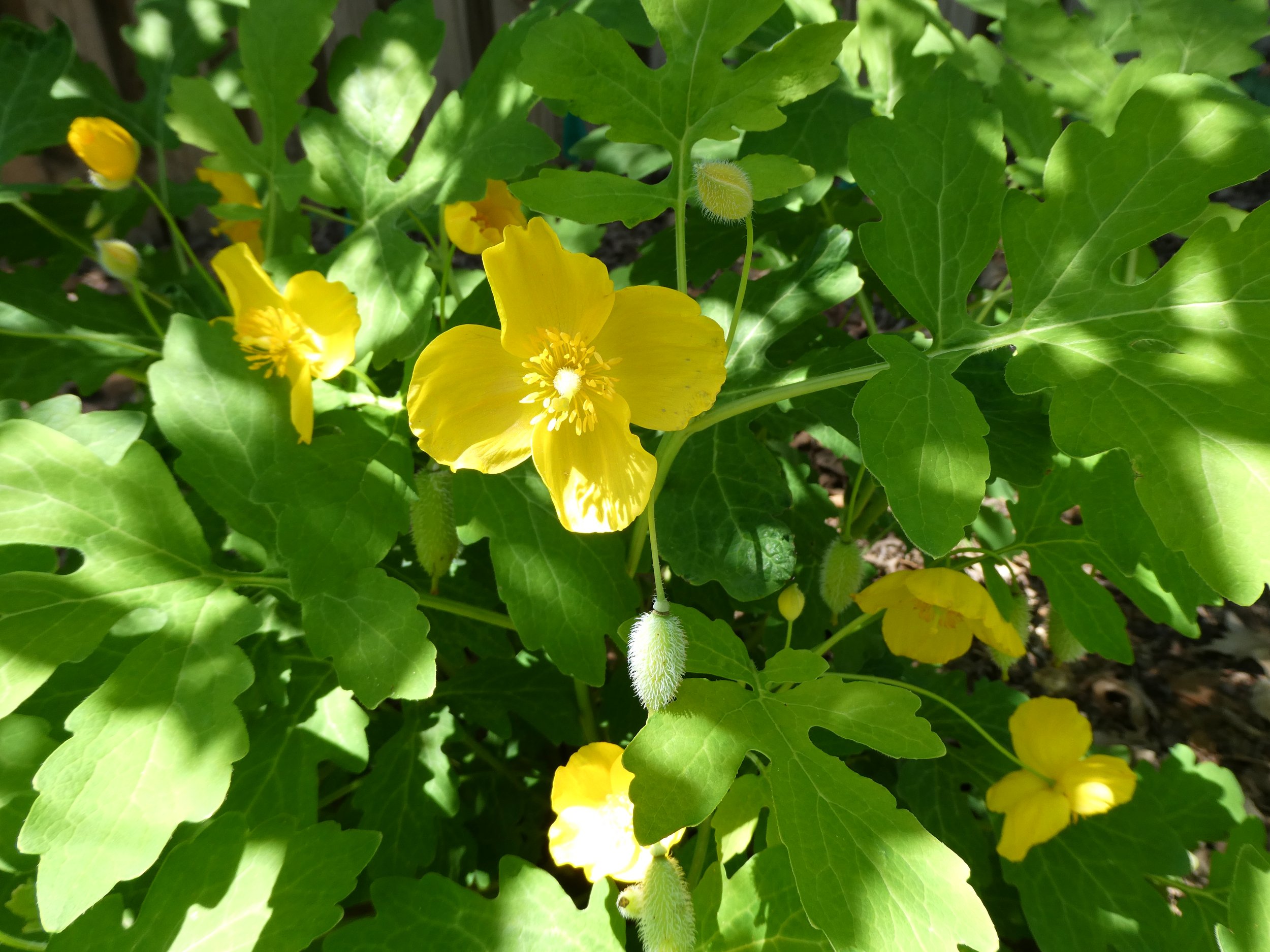Plant of the Week 7: Wood Poppy (Stylophorum diphyllum)
Wood Poppy, also known as Celandine Poppy, produces stunning yellow flowers that are sure to brighten up a native landscape. This relatively long-lived herbaceous perennial can grow up to two feet tall and complements many species of native wildflowers.
Wood Poppy next to Wild Geranium (Geranium maculatum) with Woodland Phlox (Phlox divaricata) and Fringed Bleeding Heart (Dicentra eximia) in the back.
Two non-native and invasive species, Garlic Mustard (Alliaria petiolata) and Japanese Stiltgrass (Microstegium vimineum), have threatened Wood Poppy in many areas by invading its natural habitat. Naturally occurring in rich, deciduous woods (near streams and bases of calcareous bluffs), Stylophorum diphyllum is fairly easy to grow in the garden and will thrive in areas with moist and fertile soil. It works very well in woodland settings, shaded perennial gardens, naturalistic plantings, near ponds, and along walkways.
Vibrant yellow flowers are around two inches long, with four petals and golden yellow stamens. Flowers produce pollen and attract bees and a variety of other pollinators. Flowering begins in April and can last through the end of spring into June. Sometimes they will rebloom in the fall when the weather starts to cool.
The seed capsules that follow the flowers are quite distinct. They are covered in light colored hairs and will hang down in a nodding fashion. Seeds are released once the capsule splits open; ants aid in the dispersal of these seeds. Chipmunks as well as mice enjoy eating these seeds.
The leaves of Wood Poppy can grow up to 6 inches long and are blue-green in color. They have several lobes, and the undersides are much paler and covered in fine hairs.
Look for Stylophorum diphyllum at Rock Creek Park in NW DC, Cabin John Regional Park in Maryland, and Potomac Overlook Regional Park in Virginia.







